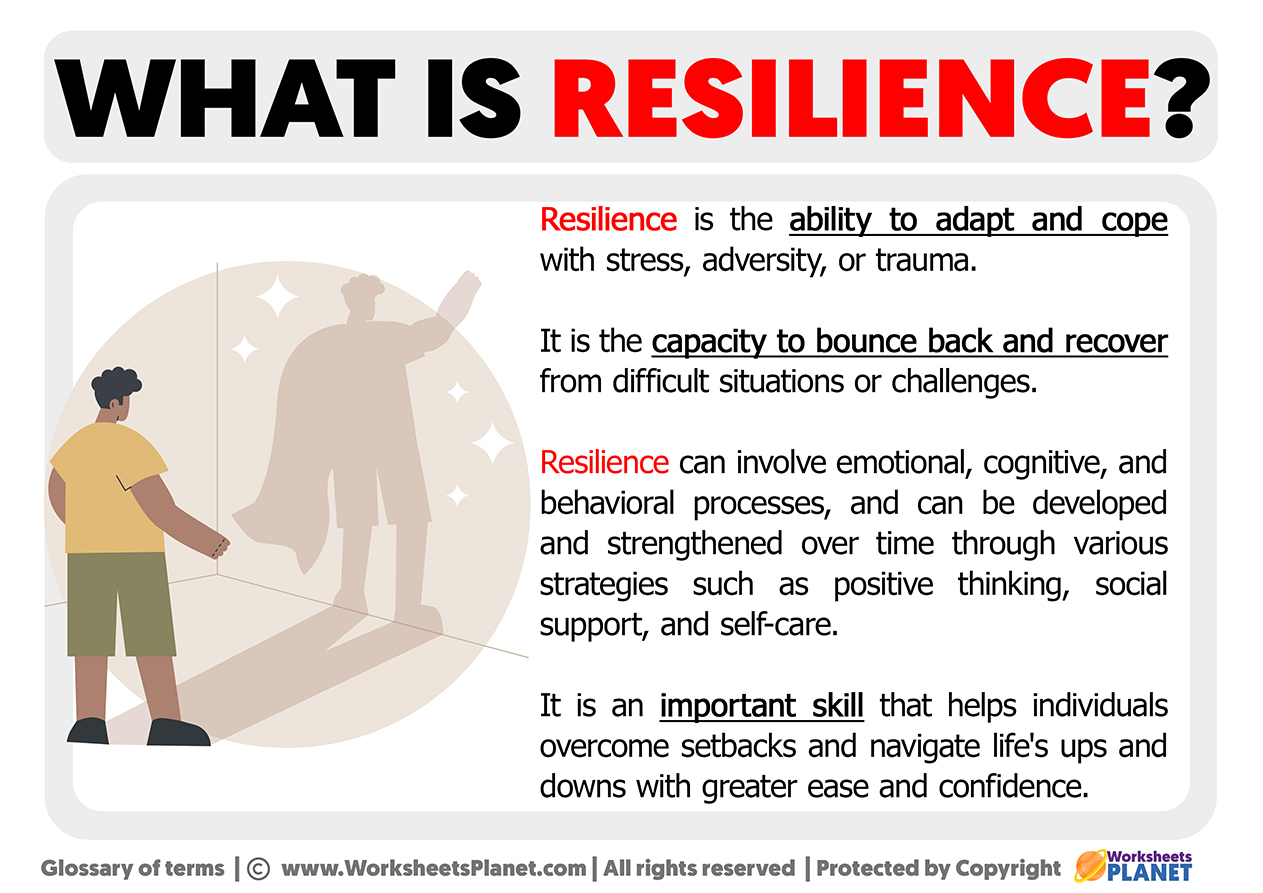Building Cognitive Resilience: Strategies for Mental Strength

Building Cognitive Resilience: Strategies for Mental Strength
In a fast-paced world filled with challenges, cultivating cognitive resilience is essential for maintaining mental well-being. Discover effective strategies to build and enhance your mental strength.
Understanding Cognitive Resilience
Cognitive resilience refers to the ability to bounce back from adversity, adapt to change, and effectively navigate life’s challenges. It involves cultivating a mindset that fosters mental strength, flexibility, and the capacity to learn and grow from experiences.
Practicing Mindfulness and Awareness
Mindfulness is a powerful tool for building cognitive resilience. By staying present in the moment and cultivating awareness, individuals can better manage stress, regulate emotions, and develop a more balanced perspective on challenges. Mindfulness practices, such as meditation and deep breathing exercises, can be integrated into daily routines.
Positive Self-Talk and Cognitive Restructuring
The way we talk to ourselves influences our perception of challenges. Cultivating positive self-talk involves replacing negative thoughts with constructive and optimistic ones. Cognitive restructuring, a therapeutic technique, helps individuals identify and challenge unhelpful thought patterns, promoting a more resilient mindset.
Cultivating a Growth Mindset
A growth mindset is crucial for cognitive resilience. Embrace challenges as opportunities for learning and growth rather than insurmountable obstacles. By viewing setbacks as a natural part of the learning process, individuals can develop a resilient approach to both successes and failures.
Building Social Connections and Support
Strong social connections contribute significantly to cognitive resilience. Cultivate supportive relationships with friends, family, or a community. Sharing experiences and feelings with others not only provides emotional support but also enhances one’s ability to cope with challenges.
Engaging in Lifelong Learning
Continuous learning fosters cognitive resilience by promoting adaptability and a thirst for knowledge. Stay curious, explore new interests, and challenge yourself intellectually. Lifelong learning enhances cognitive flexibility and equips individuals with a broader perspective on life.
Enduring Minds: Strategies for Mental Resilience

Enduring Minds: Strategies for Mental Resilience
In the fast-paced and demanding world we live in, cultivating mental endurance is essential for navigating challenges, achieving goals, and maintaining overall well-being. Discover effective strategies for building and sustaining mental resilience to endure life’s complexities.
Understanding Mental Endurance
Mental endurance is the ability to persist, adapt, and bounce back from setbacks. It involves cultivating resilience, emotional strength, and a mindset that can withstand stress and challenges. Understanding the importance of mental endurance lays the foundation for implementing strategies that foster lasting resilience.
Cultivating a Growth Mindset
A growth mindset is a cornerstone of mental endurance. Embrace challenges as opportunities for growth rather than insurmountable obstacles. View failures as learning experiences and believe in your capacity to develop skills and overcome adversity. A growth mindset promotes a positive outlook, enhancing mental resilience.
Setting Realistic Goals
Setting realistic and achievable goals is crucial for mental endurance. Break down larger objectives into smaller, manageable steps. Celebrate small victories along the way, as this fosters a sense of accomplishment and motivation. Realistic goal-setting prevents burnout and allows for sustained effort over time.
Building a Supportive Network
Social connections play a pivotal role in mental endurance. Cultivate relationships with individuals who provide emotional support, understanding, and encouragement. A supportive network provides a safety net during challenging times and contributes to a sense of belonging, crucial for mental resilience.
Embracing Stress Management Techniques
Effective stress management is a key strategy for building mental endurance. Incorporate techniques such as deep breathing, meditation, and mindfulness into your routine. These practices help regulate stress hormones, promote relaxation, and enhance your ability to cope with life’s pressures.
Prioritizing Self-Care
Self-care is not a luxury but a necessity for mental endurance. Prioritize activities that bring joy, relaxation, and rejuvenation. Adequate sleep, regular physical activity,
Equilibrium Within: Tips for Emotional Balance and Well-being

Introduction
Achieving emotional balance is essential for overall well-being, contributing to a healthier and more fulfilling life. In this article, we’ll explore practical tips to cultivate emotional balance and enhance your mental and emotional resilience.
Understanding Emotional Balance
Emotional balance involves recognizing and managing your emotions in a way that allows you to respond to situations with clarity and composure. It’s not about suppressing emotions but rather developing a healthy relationship with them. Understanding the spectrum of emotions and their impact is the first step toward achieving emotional balance.
Mindfulness and Present Moment Awareness
Mindfulness practices, such as meditation and present moment awareness, are powerful tools for fostering emotional balance. These practices help you stay grounded in the present, reducing the influence of past regrets or future anxieties. Regular mindfulness sessions can enhance emotional clarity and reduce reactivity.
Cultivating Self-Awareness
Self-awareness is a cornerstone of emotional balance. Take time to reflect on your thoughts, feelings, and reactions. Understanding your triggers and patterns empowers you to respond thoughtfully rather than react impulsively. Journaling or seeking the support of a therapist can aid in developing self-awareness.
Balancing Work and Personal Life
Achieving emotional balance often involves maintaining a healthy balance between work and personal life. Establish clear boundaries to prevent work-related stress from permeating your personal time. Prioritize self-care and leisure activities to recharge and nourish your emotional well-being.
Building Supportive Relationships
Strong, supportive relationships contribute significantly to emotional balance. Surround yourself with individuals who uplift and understand you. Open communication and meaningful connections create a sense of belonging and provide a crucial support system during challenging times.
Practicing Emotional Regulation Techniques
Emotional regulation techniques are valuable skills for managing intense emotions. Techniques such as deep breathing, progressive muscle relaxation, or visualization can help calm the nervous system and bring about a
